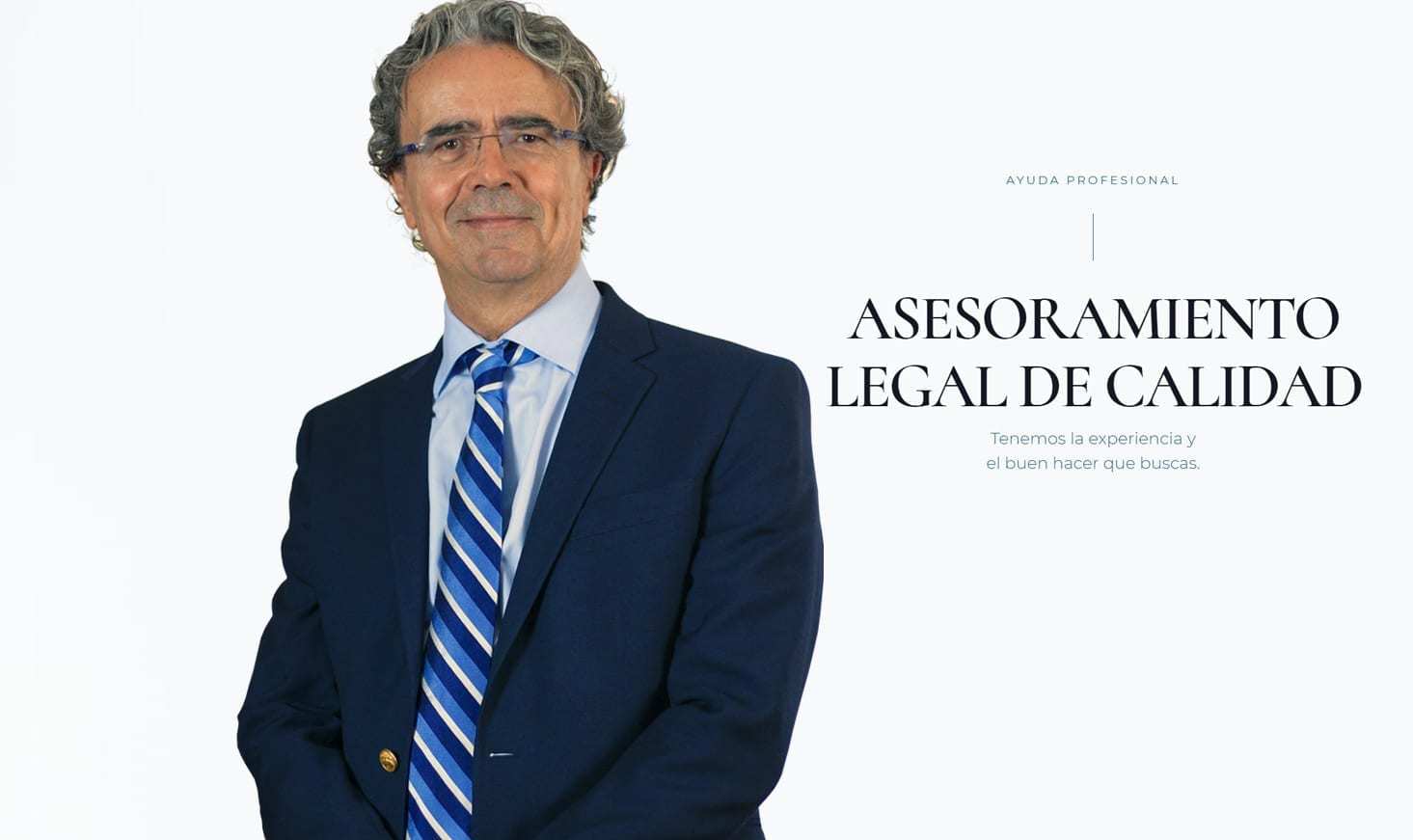HOW TO EXTINGUISH A SITUATION OF COMMON PROPERTY OR CO-OWNERSHIP IN SPAIN
Co-ownership of property in joint ownership, i.e. without assignment of a specific and individualised percentage, occurs in most cases, when acquiring property in inheritance; either by acquisition of property during marriage or by voluntary acquisition by the interested parties.
The situation of community property generates a series of rights and obligations for its owners, but more often than not, problems arise with regard to the enjoyment of said assets.
The Law facilitates, as it could not be otherwise, this possibility of division of common property or co-ownership, under the principle that no one can be forced to remain in a situation of co-ownership, as stated in article 400 of the Civil Code.
This does not cause problems in cases where the property can be divided, but in cases where this is not possible. For example, when what is held in co-ownership is a property that cannot be materially or physically divided to be distributed among the co-owners, the Civil Code in Article 404, establishes that if they do not agree that one of them should be awarded the property, compensating the others, it will be sold and the price will be distributed.
FRIENDLY EXTINCTION OF CO-OWNERSHIP BY NOTARY PUBLIC IN SPAIN
If the co-owners agree to put an end to the co-ownership they maintain, they can either proceed to the sale by notary to a third party, or one of them can acquire the whole of the property, after payment of the agreed purchase price, i.e. by compensating the others.
The division of common property will be taxed at 1% on the part that is sold or awarded, and this will be the price for all purposes, not only for tax purposes but also for other expenses.
EXTINCTION OF CO-OWNERSHIP DERIVED FROM INHERITANCE IN SPAIN
The awarding of property by inheritance is often another reason why property is acquired in joint ownership; either because there is a shortage of property to be distributed, or because the will so determines, or because of the interest of the joint owners.
Acceptance of inheritance and its division can occur in cases where there are assets in the inheritance and there is no agreement on the distribution by the heirs, and it is done by notary, if it is amicable, because if it is not, it will proceed through the judicial division of the inheritance, which will involve the appointment of an accountant and administrator, who will then proceed to the adjudication of the assets.
EXTINCTION OF CO-OWNERSHIP BY MEANS OF JUDICIAL DIVISION IN SPAIN
If an amicable agreement is not reached, there is no other solution than to resort to the judicial procedure of verbal trial provided for in the Civil Procedure Act, according to recent regulations, as these matters were previously heard in an Ordinary Trial.
We must bear in mind that the purpose of this judicial procedure is to achieve the judicial extinction of the co-ownership, which according to legal provision is achieved with the holding of a judicial auction, if the parties, previously, or in court, do not achieve another solution.
In our extensive experience in these matters, we have usually always managed to get one of the parties to agree to the purchase, and the other to sell between them or to put the sale in the hands of a property agency after agreeing on a minimum price.
The first thing we advise our clients to do is to proceed with the preparation of a real market expert report, and once this has been done, to send a request to the other party to agree to either the sale or the purchase of the property, accepting the aforementioned price.
If this is not possible, one must go to court by means of a verbal trial procedure, which used to be the Ordinary procedure, but following the publication of the latest legislative changes, the procedure will be dealt with according to the rules of the verbal trial, which will undoubtedly mean an abbreviation, at least nominally speaking, but then we have to see the reality of the Court.
This procedure, as we have said, is currently within the orbit of the verbal trial and will be processed in accordance with the same and the claim will be handed over to the defendant so that he/she can formulate a written statement of allegations with the appointment of an expert for the valuation of the property when it is to be auctioned, if the parties do not reach an agreement, giving the Court the right to issue a judgement in this sense.
JUDICIAL AUCTION OF THE CO-OWNED PROPERTY IN SPAIN
If, as a consequence of the judgement, the co-owners have not reached an agreement on the sale, there is no other solution than a judicial auction, which any of the parties may request by means of the execution of the judgement.
It goes without saying that the outcome of the auction will always be random, but something very important to say is that the parties will be able to participate in the auction without finally having to pay their share but only the difference.
It goes without saying that we consider this to be the worst solution, but unfortunately sometimes the positions of the parties are so antagonistic that no other measure is possible, which as we have said is the worst because the prices that will be obtained are always lower than in a private sale.

TIME LIMIT FOR TAKING LEGAL ACTION TO EXTINGUISH CO-OWNERSHIP IN SPAIN
There is no time limit, as this legal action is imprescriptible, so that legal action for judicial division of common property in Spain can be brought at any time.
FREQUENTLY ASKED QUESTIONS ABOUT THE EXTINCTION OF CO-OWNERSHIP IN SPAIN
1.- On the expenses generated by co-ownership in Spain
The expenses arising from co-ownership are the responsibility of the co-owners in accordance with their shareholding.
In this regard, it should be pointed out that there are often conflicts between the co-owners, often due to the consideration that the expenses are necessary and therefore common, so that if the co-owners are not on good terms, the best thing to do is to consider an extinguishment.
Other times the problems arise because everyone wants to enjoy the property, which will require agreements for use by turns, but in the more than 40 years that we have been practising our profession we have never seen this.
It is true that only when the property is acquired with this intention, but never if this is not the case.
2.- What expenses must be paid by the person who enjoys the property in co-ownership?
Whoever enjoys the property must pay the consumption costs of the same, but not the costs of the property itself, such as Community of Owners or taxes, unless the parties agree otherwise.
3.- Can I claim compensation for the use of one of the co-owners?
We understand that if the use and enjoyment is to the detriment of the co-owner who has been prevented from also using the property, and as long as this can be demonstrated, it will be possible to request the payment of compensation at the same time as the division.
4.- If the action of extinguish co-ownership affects encumbrances or rights in Spain
The answer to this question is categorical and is negative, since the decision to terminate the co-ownership of the property can never affect the encumbrances on the property.
Thus, if what it has is a mortgage, it cannot affect anything because it will continue to exist in the same way as any other encumbrance recorded in the Land Registry.
It goes without saying that it would not affect the right to lease the property that may be in force.
5.- If the extinguishment action affects the right of use and enjoyment deriving from divorce proceedings in Spain
It will never affect the right that has been attributed to one of the spouses by the Court in cases of separation or divorce.
The spouse who has the recognised right of use of the home, as it has been attributed to him/her because he/she has custody of the children, and as the marital home, will continue to have the right to this enjoyment even if the condominium can be extinguished and until the court order is effective.
6.- If one of the co-owners can sell his or her part of the property
The co-owner may sell his share, although he must first offer to the rest of the co-owners so that they can exercise their right of withdrawal, if they are interested, and buy them preferentially from a third party.
If none of the co-owners exercise this right, the part can of course be sold to a third party and in the whole process we would be dealing with a purchase and sale of any kind, and we say in the whole process, meaning that the taxes that would be paid would be the transfer taxes payable by the buyer, who would also pay the notary fees, with the seller being responsible for any capital gains that could be generated.
7.- What expenses are involved in the extinction of co-ownership if it is in favour of a co-owner?
With regard to the expenses, they would be those inherent to the transfer by means of a public deed, with notary expenses being payable by the acquirer, unless otherwise provided for.
The most important thing is that no transfer tax would be payable, which is the same as for a sale and purchase, but the legal document tax of 0.5 or 1%, depending on the Autonomous Community.
As for the capital gains tax, it would be paid by the transferors if applicable.
Law Firm Carlos Baño
This law firm with great experience in Real Estate and Construction Law in Alicante, is at your disposal to help you in any way you may need.

“DIVISION OF JOINT PROPERTY OWNERSHIP IN SPAIN”


